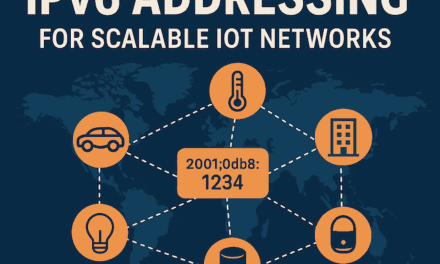Introduction
In the world of web hosting, IPv6 is rapidly gaining traction as the next-generation Internet protocol. This blog post will guide you through the steps to enable and configure IPv6 on an Apache (apache2) web server running on Ubuntu Linux. This is crucial for ensuring your website remains accessible to users on IPv6 networks.
Step 1: Ensure IPv6 is Enabled in Ubuntu
Before configuring Apache, make sure your Ubuntu server supports IPv6.
- Check IPv6 Support Open a terminal and run:
cat /proc/sys/net/ipv6/conf/all/disable_ipv6If it returns 1, IPv6 is disabled. To enable it, proceed to the next step.
- Enable IPv6 Edit the sysctl configuration:
sudo nano /etc/sysctl.confAdd the following lines:
net.ipv6.conf.all.disable_ipv6 = 0
net.ipv6.conf.default.disable_ipv6 = 0Apply the changes:
sudo sysctl -pStep 2: Configure IPv6 in Apache
- Open Apache Configuration Edit the Apache configuration file:
sudo nano /etc/apache2/ports.conf- Add Listen Directive for IPv6 Add the following line to listen on IPv6:
Listen [::]:80For HTTPS, also add:
Listen [::]:443- Update Virtual Hosts for IPv6 Edit your virtual host file, usually located in
/etc/apache2/sites-available/your-site.conf:
sudo nano /etc/apache2/sites-available/your-site.confAdd an IPv6 VirtualHost entry:
<VirtualHost [::]:80>
ServerName yourdomain.com
ServerAlias www.yourdomain.com
DocumentRoot /var/www/html
# ... other directives ...
</VirtualHost>Repeat for HTTPS and other virtual hosts as necessary.
Step 3: Restart Apache
Apply your configuration changes by restarting Apache:
sudo systemctl restart apache2Conclusion
Congratulations! You have successfully enabled and configured IPv6 on your Apache web server running Ubuntu Linux. This setup ensures that your website is ready for the future of the internet, providing accessibility to users on both IPv4 and IPv6 networks.
Additional Tips
- Always backup configuration files before making changes.
- Test your website using an IPv6 connection or an online IPv6 testing tool.
- Consider updating your DNS records to include an AAAA record for IPv6.





